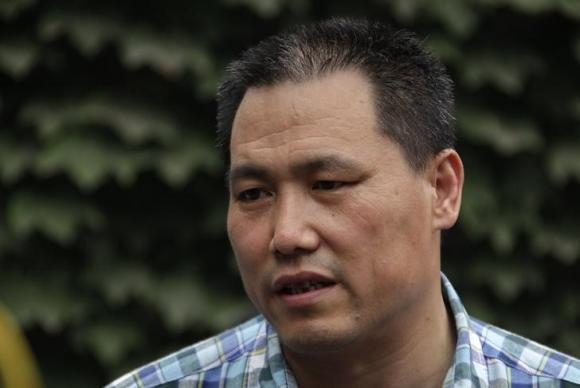Rights lawyer Pu Zhiqiang has been detained since May while prosecutors build a case against him on potential charges of “picking fights and causing trouble,” “inciting ethnic hatred,” “inciting separatism,” and “leaking personal information.” The case reportedly hinges on 28 Weibo posts written by Pu between 2011 and 2014 on a variety of topics. For the New York Review of Books, Perry Link looks at the Weibo posts and surmises that if Pu is handed a heavy sentence, “the effects on China’s Internet will be devastating. The casual sarcasm that has been the coin of its realm will suddenly become perilous, and self-censorship will become even more pervasive than it already is.” He writes:
In his comments on Uighurs and Tibetans, Pu tries to appreciate how ethnic minorities see things—not ideologically but as practical matters of daily life. He hears about a new regulation ordering that Buddhist temples in Tibet hang portraits of the top Chinese leaders—all Han—and that the stated reason for the move is “to dissipate religious consciousness.” He posts: “Are Han heads insane? Or only the head Hans?” When militant Uighurs massacre people at the Kunming railway station, Pu denounces the violence but then posts, “This is a result, not just a cause.”
The posts that the regime seems to be counting as “picking fights and causing trouble” usually show disrespect for the Communist Party’s fakery. They are sometimes blunt (“This Party, top to bottom, could not survive without lies”) and sometimes wickedly witty. On Shen Jilan, a representative of record-setting longevity in the People’s Political Conference, who boasted of casting not one single “nay” vote in sixty years, Pu wonders: “Good at feigning stupidity? Or is this authentic stupidity?”
It may seem odd to detain someone first and then go look for the reasons for the detention, but in fact this is a well-established pattern. In the trial of the Maoist “Gang of Four” after Mao Zedong died, in Deng Xiaoping’s charges against the dissident astrophysicist Fang Lizhi in 1989, in the prosecution of Nobel Peace laureate Liu Xiaobo in 2009, and in many other cases, the questions “What law was broken?” and “What facts show that it was broken?” have both been researched after detentions are ordered. And in Pu’s case, by going after Internet speech, however harmless or trivial it may be, the authorities may be staking out a further area in which the regime of Xi Jinping hopes to tighten its control. [Source]
Read more about Pu Zhiqiang, via CDT.








